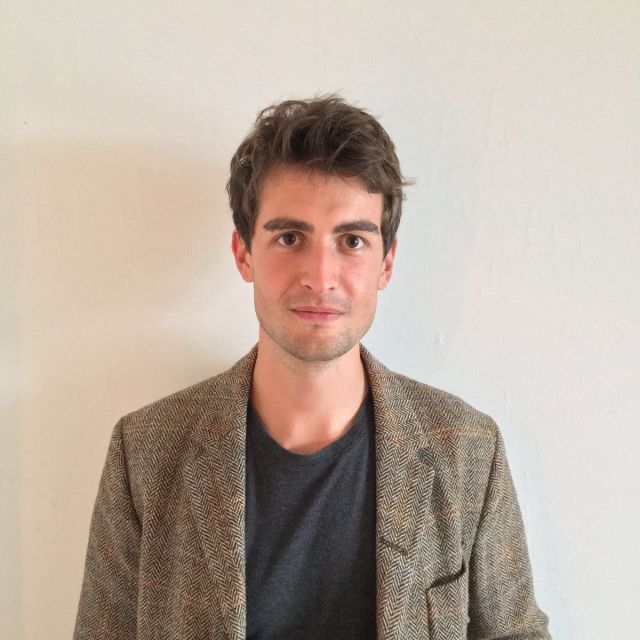Tuned Out
More and more people are wearing noise-cancelling headphones or earbuds in everyday life. Yet this shift raises questions: Are we losing something vital in the process? What does it mean for public life, where we no longer make eye contact, smile, or strike up a conversation with strangers?

Headphones and earbuds help us retreat into our own world. However, with more people using them anywhere and everywhere, this impacts the way we interact in public space. What does this growing “social silence” mean for our shared environments?
In this project, we explore how audio technologies like headphones and earbuds affect social cohesion in public areas such as parks, squares, and public transport. Are people tuning out? And if so, how do they feel about it?
Together with philosophers from the Ethics of Socially Disruptive Technologies (ESDiT) consortium and the Young Netizens Programme of the City of Amsterdam, we are co-creating a values-based design process to better understand this complex dynamic.
Tuning in to disconnection
This project focuses on how people of different ages experience the use of headphones or earbuds in public and what values are at stake when we ‘tune out’ of the world around us.
Rather than jumping straight to a solution, we begin with listening: How do different generations actually feel about tuning out in public space? Do they see the use of headphones and earbuds as a problem or simply a modern necessity? By surfacing these differing perspectives, we aim to open up a conversation about what public space is for, and how it can be shared.
We explore the tension between two core values: personal autonomy and social cohesion. On the one hand, people have the right to retreat into their own soundscape. On the other, cities thrive on moments of spontaneous interaction and shared presence. Can these be balanced—and if so, how?

Public spaces are shared spaces, but we don’t always agree on what ‘shared’ should mean. By exploring how people experience headphone and earbud use across generations, we’re not only investigating a social phenomenon — we’re opening a conversation about values, presence, and mutual awareness in everyday life.”
— Julia Hermann, Assistant Professor in Philosophy and Ethics of Technology, Universiteit Twente
Designing with values in mind
In collaboration with the Ethics of Socially Disruptive Technologies (ESDiT) consortium, we’re combining philosophy, social science, and design research. The project will be shaped through:
- Intergenerational focus groups (ages 16–25 and 45–60)
- Exploration of experiences, values, and tensions in public space
- Prototyping playful and speculative digital interventions
While no specific interventions have been decided yet, the project aims to experiment with speculative, playful prototypes. These could include nudges that raise awareness, ambient signals that encourage brief interactions, or gentle prompts to reconsider how we use headphones or earbuds in certain settings.
During early discussions, we noted that although headphone use in public space has sparked debate for years, there are still few examples of successful or accepted interventions. Moreover, it remains unclear whether headphone or earbud users themselves see the same issues. That’s why this project starts with listening—literally and figuratively.
We’re interested in how young people themselves see this trend, to understand what matters to them. Tuning out with headphones or earbuds might feel natural, but what happens when we start asking: what do we miss when we disconnect?”
— Ilona Kemps, Project Lead Young Netizens programme, City of Amsterdam, City of Amsterdam
A collaborative, values-based approach
This project is part of the Ethics of Socially Disruptive Technologies (ESDiT) program and is developed in collaboration with the City of Amsterdam and AMS Institute. Within ESDiT, the following universities are also actively involved.
- TU Delft
- Eindhoven University of Technology
- University of Twente
- Utrecht University
- UMC Utrecht
- Wageningen University & Research
- Leiden University
The methodology blends value-sensitive design, speculative prototyping, and qualitative research methods such as interviews, focus groups, and citizen interaction to generate grounded, ethical insights.
Timeline
- April: Develop problem description
- May: Explore the issue in depth
- June: Plan intergenerational focus group sessions
- July: Conduct 2 focus groups (online and in-person)
- August: Develop concepts and prototypes
- September: Reflect and refine
- October: Share first insights via blog post
- November: Final presentation and wrap-up
Interested in joining the conversation?
We regularly seek participants for our focus groups. Care to join us in exploring what headphones or earbuds mean for public space?
- July 31st
- 17:00-18:15
- Online
- €25 compensation
Interested? Contact fabian.geiser@ams-institute.org










